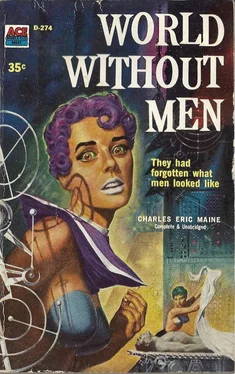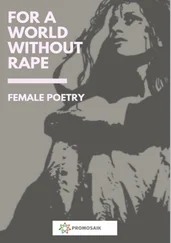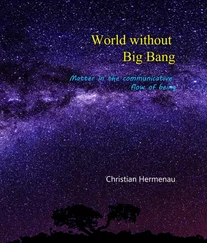She was wearing a gossamer gown in spider latex. It was white, in the translucent white of spun glass, but no whiter than the flesh it concealed. Only the nipples were darker under the folds of the garment, smoke-tinted, diminutive, and the body hair was colourless. Her fingernails and toenails were lacquered in silver, and her lips were ivory-white with cosmetic. The pink of her eyes was generously extended by means of suitably matched stain over the entire surface of the cornea, lending her a transcendental air of remote ghostliness. But for all that she was as real and as physical as any woman Aubretia had ever known.
“I don’t know, Quilly. The lab assistants say she left with the mortic people who removed the body.”
“And why are you worried about her?”
Aubretia hesitated. The blue gin was beginning to seep into her brain and coherent thought was becoming difficult. “I think it was the way the Mistress of Information talked, about the need for secrecy, and so on. You know what Gallardia is like; she couldn’t keep a secret for more than ten seconds.”
Aquilegia smiled without moving her lips. “I don’t think you need worry about her,” she said quietly. “You will not see her again, but she will be well and safe.”
Aubretia regarded her companion questioningly, noting subconsciously the unexpected manifestation of hard poise beneath the sweetness of her form and colouring.
“The Department of the Written Word is closely associated with the Department of Social Stability. They have a common policy on matters that affect the P.A.S.,” Aquilegia added.
“P.A.S.?”
“Parthenogentic Adaptation Syndrome.”
“What has that to do with Gallardia?”
Aquilegia spread out her hands non-committally. “Very little, really. She has certain information that could, conceivably, conflict with the syndrome if it were spread around. The information must be erased.” A pause while she sipped her drink, watching Aubretia with expressionless pink eyes. “Don’t be alarmed, darling. Gallardia will come to no harm. It is a mere matter of what we might call hypnotic technique, a slight remodelling of the cerebral memory tracks by induced suggestion. Afterwards she will remember nothing of the man. She will almost certainly be transferred to another laboratory in a remote part of the country.”
Aubretia stood up slowly, holding her glass, and leaned against the low railing of the verandah. The cavernous streets of the city yawned eighteen storeys below, but her eyes were on her friend, and there was a certain quality of constraint in her poise which defied the creeping flaccidity of her limbs as the gin permeated her blood.
“You seem to know a great deal about departmental policy and procedure, Quilly. I never realized you had any contact with the government — not to that extent.”
The other woman’s smile seemed warm and genuine enough. “Don’t get worried, darling. I know a great deal that perhaps I shouldn’t know. I’ve got an inquiring mind.”
“What else do you know?”
“That you’re a beautiful and desirable woman. There, does that make you feel better?”
“Should it?”
Again the enigmatic gloss in the pale pink eyes. A faint sense of alarm clutched icily at Aubretia’s heart. She returned to her seat and finished her drink, then touched Aguilegia’s arm with nervous fingers.
“Quilly, you’re not getting fed up with me, are you?”
“Of course not, darling. I’m teasing you, really. Tell me, when the Mistress of Information talked about the syndrome, did you understand her?”
“Vaguely. It had to do with evolution. How women had adapted themselves to parthenogentic existence without men. Then she said something about modifying the emotions.” Aquilegia nodded soberly.
“Do you feel that your emotions have been modified?”
“Of course not.”
“Life seems perfectly normal to you: life and love and parthenogenesis?”
“Yes, Quilly. Shouldn’t it?”
“The Mistress of Information told you that the male sex died off because they were no longer necessary.”
“Yes. She said nature had found there was no further need for variants because we had learned how to adapt the environment to ourselves. Men died out and parthenogenesis came in.”
Aquilegia filled the glasses again with a steady hand. “Did she say when parthenogenesis started.”
“Not exactly. There have been isolated cases throughout history. A parthenogentic woman called Christ, for instance, some seven thousand years ago.”
“Christ was a man,” Aquilegia pointed out.
Aubretia considered this for a moment, sipping her drink thoughtfully. “That’s impossible; a man has forty-seven chromosomes and you can’t produce a male by parthenogenesis.
“Nevertheless, Christ was a man.”
“Then he couldn’t have been parthenogentic.”
“Exactly, Aubry. He couldn’t have been. Did the Mistress quote any more known cases of natural parthenogenesis?”
“No.”
“And today, five thousand years after the disappearance of man from the face of Earth, how many women achieve natural childbirth by parthenogenesis?”
Aubretia ran the tip of her little finger around the contour of her chin, vaguely aware that the conversation was becoming too deep for her. “The majority,” she stated, but without conviction.
“Have you seen the statistics?”
“No. Not recently.”
Aquilegia smiled sardonically. “Have you ever seen any statistics at all?”
“Not as such. But there have been numerous official statements for the press”
“From the Department of the Written Word, no doubt inspired by the Department of Social Stability. I’ll tell you something Aubry: There aren’t any statistics. At least, not the kind that you or I could see. Such figures as are recorded are top secret and are kept under lock and key.”
Aubretia gripped her glass with fingers that trembled slightly, and drained the blue liquid in a single fiery gulp. The fairy lights of the city in the precipitating gloom danced hazily beyond focus. Aguilegia’s face was a smooth white mask in the darkness.
“Would it surprise you to learn that there are no natural parthenogentic births whatever?” Aquilegia continued. “There never have been. Possibly one or two cases in ten million that cannot be authenticated anyway.”
“Quilly!” gasped Aubretia. “You can’t be serious.”
“But I am, darling.”
“But the live birth quota of hundreds of babies every day by parthenogenesis.”
“Induced parthenogenesis, Aubry, simply applied cytology. The ovum is persuaded to divide and subdivide and develop without fertilization, by artificial means.”
Aubretia stood up again, swaying slightly, and leaned against the balcony railing, holding it tightly with one hand. “That’s not true. Four years ago I had two babies by natural parthenogenesis.”
“How do you know? In this age of disease-free living any one of the prophylactic injections we have periodically could be a parthenogentic stab. The rest follows automatically.”
“They wouldn’t dare. It would be an infringement of personal liberty.”
“That’s rather a platitude for you, Aubry. In point of fact we haven’t any personal liberty; we are ‘free’ only in so far as we comply with the adaptation syndrome. And that is something of a misnomer. It isn’t a syndrome at all. It’s a pattern of behaviour enforced from outside. Were conditioned — all of us.”
Aubretia sighed, and placed her empty glass on the table. “I’ve never heard you talk this way before, Quilly. It alarms me. It’s not as if there were any evidence for what you say.
I was never conditioned. Nobody forced a pattern of behaviour on me. I just can’t believe it.”
Читать дальше












